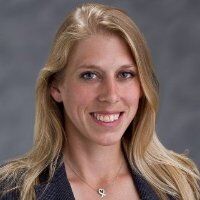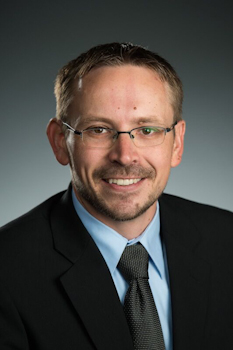Executive MBA programs are usually a collection of accomplished professionals. They are seasoned executives, physicians, engineers. Many already hold postgraduate degrees. And, in the words of Cornell University EMBA Veronica Carrera, most carry a secret that they dare not share: “We are all afraid.”
FROM FEARING TO LEADING
Ashley Sager experienced this phenomenon when she started her EMBA program at MIT’s Sloan of Management. Despite being 30, she was among the youngest members of her cohort. Riding a wave of validation onto campus, Sager was quickly humbled during orientation.
“I spoke with my awe-inspiring peers – an MD-PhD cardiac surgeon now working in the pharma industry; a man that had been CEO of four different companies in four different industries; a woman that had been in the military and then started her own consulting company – it seemed like every person I met was more impressive than the last,” she writes to Poets&Quants. “I felt as though I didn’t belong, like the EMBA staff had made a mistake in accepting me. I don’t often feel self-conscious but I truly felt like I didn’t deserve the opportunity I had been given.”
Indeed, the transition from go-to expert to team member can be discouraging early on. But then, after classmates size each other up, they start working together, and a funny thing happens: they quit judging and start appreciating the valuable role each team member plays. “Six months later,” Sager recalls, “I realized that . . . everyone in the program was just there to grow and wanted all their colleagues to get the most out of the program as well. Nobody else thought I wasn’t ‘good enough’ to be in the program.”
Her own view of her place in the program would evolve. “In the fall of 2014 I was able to give some review sessions in finance; at that time I finally felt like I had something to give the class and felt on par with my peers. And now, in my final semester, I think we’re all just happy to be spending time together. I’m very comfortable with who I am and just glad to be learning and working with friends.”
SENSE OF COMMUNITY IS PARAMOUNT AMONG SUCCESSFUL EMBAs
Poets&Quants’ Best Executive MBAs of the Class of 2015 experienced several surprises along the way to their degree. Some like the University of Southern California’s Pierre-Marie del Moral, who holds a PhD in Molecular Biology, were stunned by how academic the program really was. “Being trained as a scientist,” del Moral observes, “I was expecting business school to make me think in a very different way. While the topics taught were very different from the ones I learned in biology, the same rigorous thinking process is applied in preparing a project: gathering information, making assumptions, formulating a hypothesis and testing it are critical steps for a successful outcome on a business project or a research proposal.”
However, theory, experience, and application are only part of the equation, adds the University of Virginia’s Jennifer Schretter. “While you certainly gain a lot of technical knowledge and business acumen, the most important learning lessons are often unplanned, in the area of personal development, and stem from both self-discovery and insight provided by your peers.”
And the value of alumni, faculty, and peers were a consistent theme among this year’s EMBAs. IESE’s Flavio Palaci touted his program’s “global outreach” and “deep relationships with senior leaders.” Patti Fitzpatrick of Texas A&M lauded her faculty’s openness, along with their “accessibility and responsiveness.” And Kevin Smith, a Coca-Cola executive who earned his degree from Georgia Tech, noted that his classmates made his journey more enjoyable than he expected. After the first few weekends, a sense of community had developed which, he says, made going to class on the weekend “much less arduous.”
Here are some additional surprises encountered by the Class of 2015:
More Collaborative Than Competitive
“I anticipated that an Executive MBA cohort would be filled with extremely competitive and combative individuals as a result of their success and leadership positions. While our cohort was full of gifted and successful men and women, the combative, cut-throat environment I predicted never materialized. Instead, our group made a conscious decision to create a classroom culture that was inclusive, not exclusive. While we all pushed ourselves for greatness, it was never at the expense of those around us. I truly believe that we all wanted each person to succeed. It was a special thing to be a part of, and was definitely not what I thought I would encounter when I first enrolled in the program.” – Scott Gates / Arizona State University, Carey School of Business
Lessons Immediately Relevant
“I was surprised by how quickly I was able to start putting the tools I learned in class to use. Our first class was Organizational Behavior; I began immediately applying the techniques I learned to the projects I was working on at the time. The content of each course is timely and applicable to current-day issues, which enables students to begin reaping returns on their investment immediately.” – Jackie Dawson / University of Pittsburgh, Katz Graduate School of Business








Questions about this article? Email us or leave a comment below.